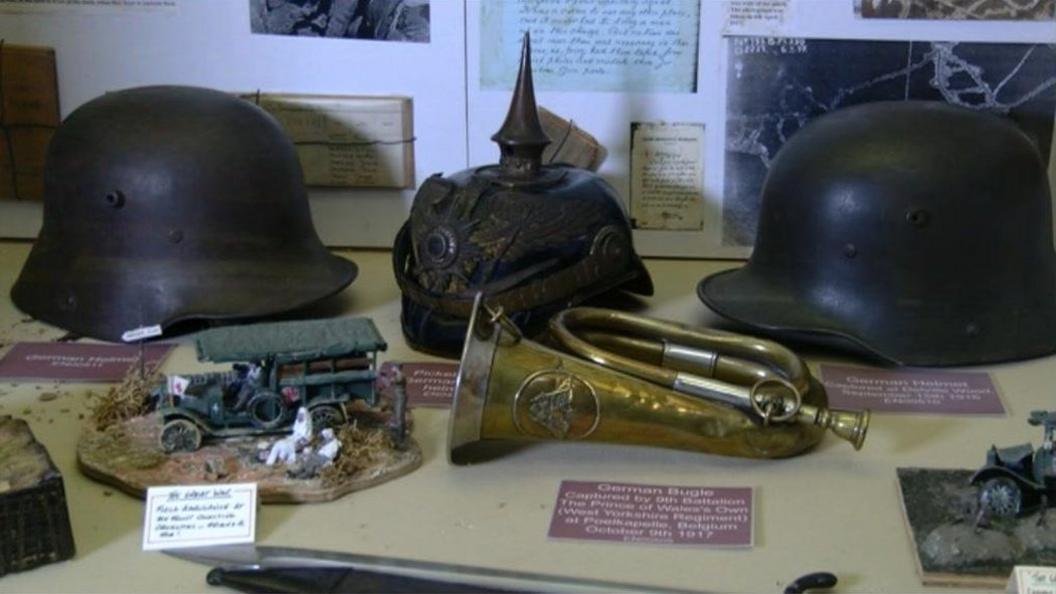World War One: Jack Harrison 'one of Hull's true heroes'
- Published
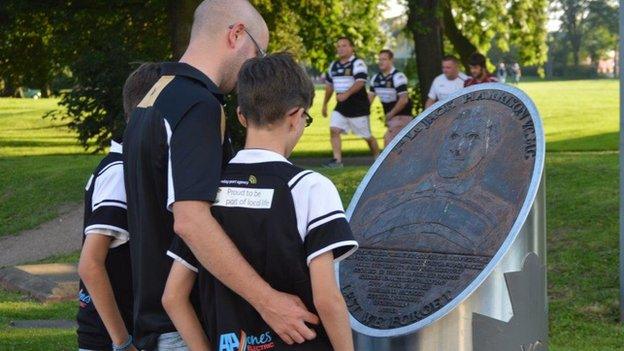
John 'Jack' Harrison had been a star rugby league player before he joined the carnage of World War One
World War One took professional Hull FC rugby league star and teacher Jack Harrison to the battlefield, where he found bravery under fire to become an inspiration to generations anew in the East Yorkshire city.
It is May 1917 and the early hours of a new day at the western front in France.
Heavy German machine-gun fire is being trained on advancing soldiers of the East Yorkshire Regiment who are pinned down sheltering from the bullets. Two attacks by the troops have been already been repulsed.
A lone figure stands up and races towards a wood containing the machine-gun emplacement, he silences the gun by blowing it up and is then seen to fall.
With the firing lifted a number of the attacking soldiers do get into the enemy-held strongpoint in the wood but are eventually pushed back, finishing the day back in the trenches they set out from.
The attack cost the East Yorkshire Regiment more than 800 men, including 12 officers and 215 men who were killed.
One of those casualties was the man who dashed forward to silence the machine-gun, temporary Second Lt John Harrison - posthumously awarded the Victoria Cross for his bravery that day.
Sporting success
John 'Jack' Harrison had been a star rugby league player for his home town team Hull FC before he joined the carnage of World War One.
A teacher, he had played his first game for the club in September 1912 and was a winger in the team that won the club's first Challenge Cup in 1913-14, scoring a try in the final.
He scored 52 tries in that pre-war season, a club record that still stands, and crossed for 106 tries in his 116 matches before his last game for Hull FC on Boxing Day, 1916.
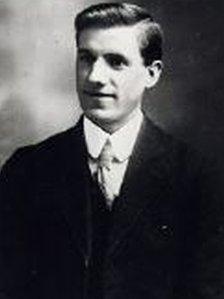
Harrison joined Hull Pals' Battalions of the East Yorkshire Regiment
Within days he left for the trenches of France with fellow Hull Pals of the East Yorkshire Regiment.
Bill Dalton, Hull FC historian, has studied what happened on the fateful May morning, in Oppy Wood, close to Arras.
He said: "Various battalions were under great pressure. Jack Harrison led the troops to within a few hundred yards of the German position.
"Under heavy attack from one particular machine gun battery they couldn't advance any further so Jack ordered his troops to take cover.
"He had to negotiate through three lines of barbed wire but he took it upon himself to dash out with a single Mills bomb across no-man's land and succeeded in depositing that bomb with the German battery and blew it up.
"The machine gun didn't fire again but Jack was observed by his troops to fall face down and was never seen again."
Harrison's body was never found. He is commemorated on the Commonwealth War Graves Commission, external's memorial in Arras.
Jack Harrison was winger for Hull FC
Mr Dalton said: "You would like to think when he was dashing across that battleground... his rugby skills would have come into play."
Johnny Whiteley, 83, played more than 400 games for Hull FC from 1950 and said Harrison would come to mind at times when he captained the team.
"He was part of Hull FC folklore, someone we all looked up to," he said.
"Jack Harrison got out of a trench and led men, to his death. We were not going to die playing rugby league but he was an inspiration.
"He will be long-remembered for the courage he showed."
In 2003, a service took place to unveil a memorial to Harrison at the city's KC stadium, present home of Hull FC.
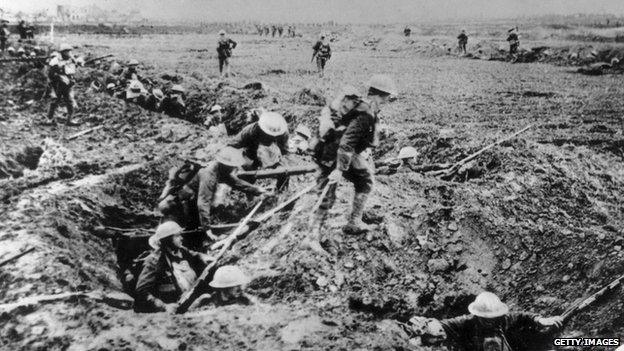
Former Hull FC player Johnnie Whiteley said: "Jack Harrison got out of a trench and led men to his death... he was an inspiration."
Wood renamed
The Reverend Alan Bagshaw, chair of the Jack Harrison Memorial Trust and the club's former chaplain, said: "He was one of Hull's true heroes in the First World War winning both the Military Cross and posthumously the Victoria Cross."
Harrison is also remembered with a charitable trust that bears his name and a silver medal is awarded annually in his honour, to a young person who has overcome adversity through sport.
Harrison's widow Lillian was presented with his Victoria Cross by King George V at Buckingham Palace in 1918.
A small oak, ash and willow wood on the outskirts of Hull has been re-named Oppy Wood in honour of the hundreds of Hull men who died in that action in France.
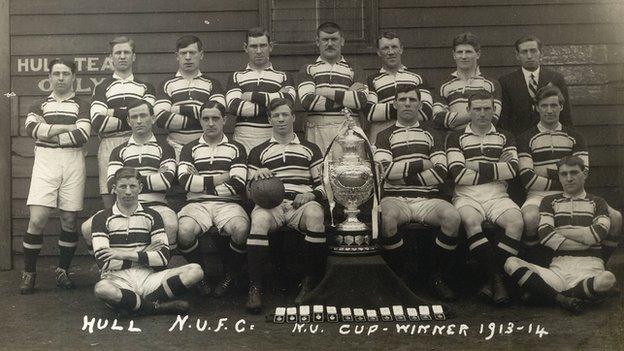
The team had won the club's first Challenge Cup in 1913-14
- Published22 December 2013
